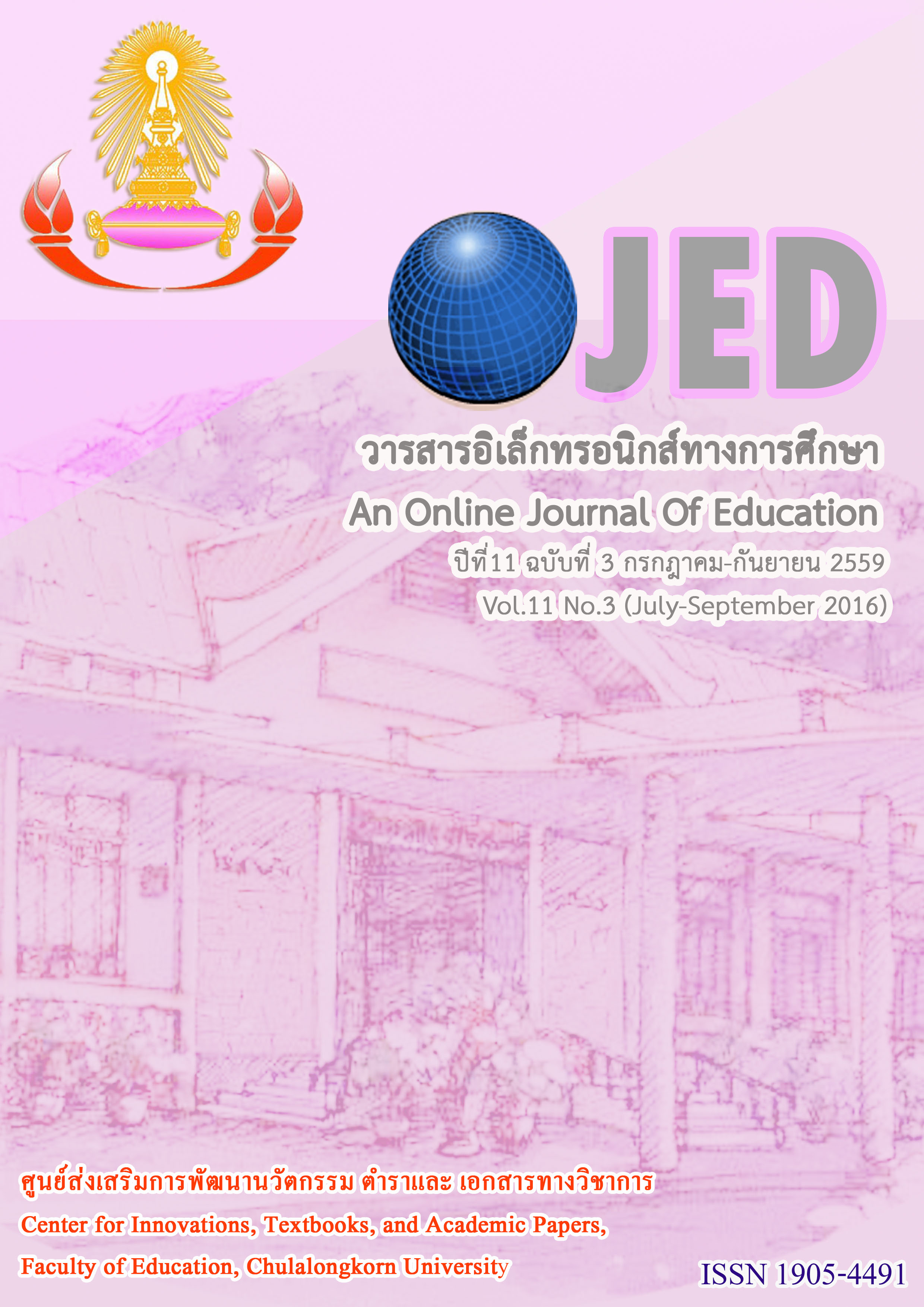การศึกษาสภาพและปัญหาการขับเคลื่อนนโยบายการศึกษาเพื่อพัฒนาคุณภาพชีวิตเด็กพิการ A STUDY OF SITUATIONS AND PROBLEMS OF EDUCATIONAL POLICY IMPLEMENTATION FOR THE DEVELOPMENT OF DISABLED CHILDREN’S QUALITY OF LIFE
Keywords:
นโยบายการศึกษา, การขับเคลื่อนนโยบาย, คุณภาพชีวิตเด็กพิการ, EDUCATIONAL POLICY, POLICY IMPLEMENTATION, DISABLED CHILDREN’S QUALITY OF LIFEAbstract
การวิจัยครั้งนี้มีวัตถุประสงค์เพื่อศึกษาสภาพและปัญหาในการขับเคลื่อนนโยบายการศึกษาเพื่อพัฒนาคุณภาพชีวิตของเด็กพิการ ด้วยระเบียบวิธีวิจัยเชิงคุณภาพ โดยเก็บข้อมูลด้วยการสัมภาษณ์เชิงลึกผู้ที่เกี่ยวข้อง ได้แก่ ผู้บริหารระดับกระทรวง ผู้บริหารระดับโรงเรียน นักวิเคราะห์นโยบายและแผน ครูชำนาญการ คณะอนุกรรมาธิการด้านคนพิการ และเครือข่ายคนพิการที่ทำงานด้านการขับเคลื่อนนโยบาย
ผลการวิจัยพบว่า 1) ผู้บริหารระดับกระทรวงเห็นว่านโยบายและแผนในการจัดการศึกษาเพื่อคนพิการมีความครอบคลุมทำให้เด็กพิการได้รับโอกาสและเข้าถึงการศึกษาเพิ่มมากยิ่งขึ้น 2) ผู้บริหารระดับโรงเรียนเห็นว่าการนำนโยบายไปสู่การปฏิบัติอย่างแท้จริงขึ้นอยู่กับผู้บริหารระดับนี้ในการแปลงนโยบายมาสู่การปฏิบัติของบุคลากรในสถานศึกษา โดยจะต้องกำหนดแผนตามแบบแผนของกระทรวงศึกษาธิการ 3) ภาคีเครือข่ายองค์กรคนพิการให้ความสำคัญขับเคลื่อนนโยบายเพื่อเพิ่มการเข้าถึงสิทธิทางการศึกษาของกลุ่มคนพิการ โดยต้องทำความเข้าใจความต้องการของคนพิการกับความพร้อมของส่วนราชการ ขับเคลื่อนเพื่อทำงานร่วมกันกับหน่วยงานภาครัฐ ปัญหาที่พบคือ การขาดแคลนบุคลากรด้านการศึกษาพิเศษ ความเข้าใจไม่ตรงกันในการนำนโยบายหรือกฎหมายไปสู่การปฏิบัติ การปรับเปลี่ยนผู้บริหารบ่อยครั้งซึ่งส่งผลกระทบต่อการทำงาน และการขาดองค์ความรู้เชิงวิชาการที่สนับสนุนการขับเคลื่อนนโยบาย
This research aims to study situations and problems on educational policy implementation of for the development of the disabled children’s quality of life .through qualitative research. The data is collected through interviews with ministerial executives, school executives, policy analysts, Professional Level Teachers, sub-committee members involved with people with disability, and networks for people with disability involved in policy implementation.
The study finds that 1) Ministry executives argue that policies and plans on education for people with disability are coherent with the laws that provide people with disability opportunities and access to education, 2) The perspectives of school executives argue that policy implementation would be translated into practice through school executives. In translating policy into practice, it is imperative that school executives follow the guidelines from the Ministry of Education, 3) Focus on the importance of policy implementation to increase educational access for people with disability by understanding interests of people with disability and preparedness of the public sector to push forward inclusiveness in the public administration. The study finds the following issues: lack of personnel on Special Education, different mindsets towards policy and legal implementation, reshuffling of executives affecting the work, and lack of academic knowledge supporting policy implementation.




